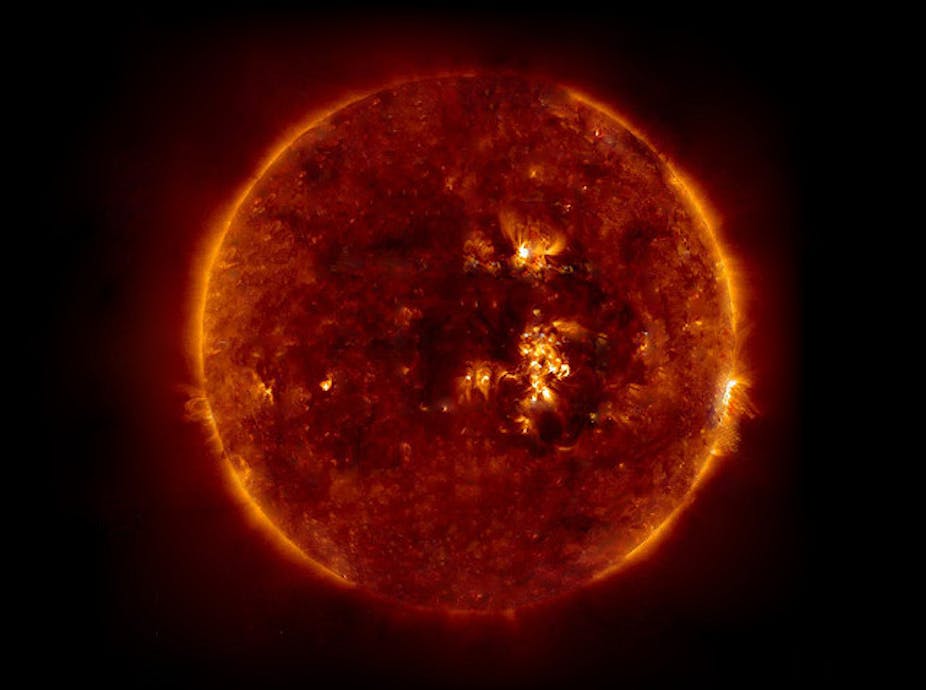Changes in solar radiation, known as solar forcing, have had only a very small effect on climate change, a member of the UN’s top panel of climate scientists said today.
The comment, made by a member of the UN’s Intergovernmental Panel on Climate Change (IPCC), followed the leak of a draft IPCC report late last year, which included comments on the effect of solar forcing on climate change.
At the time of the leak, the climate change skeptics blog, Watts Up With That drew attention to what it described as a “game-changing admission of enhanced solar forcing” but co-chair of the IPCC’s Working Group 1, Professor Thomas Stocker said that solar forcing actually did not play a major role.
“As the scientific publications indicate, the assessment is not yet completed. We are looking at an extremely small effect here, that’s what one can say from the publications but I should stress the experts are still performing their assessment,” he said a press conference in Hobart today.
The person who leaked the report, blogger Alec Rawls, obtained the draft by signing up as an expert reviewer of the draft.
Professor Stocker said the IPCC was “interested to have a very wide range of experts” reviewing their draft reports.
“We don’t want to have quantitative bars on the reviewers, for example requesting a certain number of publications in peer reviewed journals. We rely on an honest self-declaration on why he or she is an expert,” he said.
Extreme events
Professor Stocker and other members of the IPCC’s Working Group 1 met today in Hobart, after a week of bushfires ravaged Tasmania and a heatwave swept Australia.
Professor Stocker said that previous IPCC reports had “clearly shown there is a connection between increased greenhouse gas concentration, changes in climate, in particular changes in frequency and intensity of extreme events.”
“The five hottest summers in Europe have all occurred after 2001 over the past 500 years. This is a very interesting observation,” he said.
Dr Scott Power from the Bureau of Meteorology and an IPCC Working Group 1 coordinating lead author, said bushfires and hot weather were part and parcel of living in Australia.
“What climate change does is increase the likelihood of such events and increase the intensity of such events,” he said.
“So far in Australia, we have seen warming of the climate of about 0.9 degrees Celsius since 1910 and that’s projected to go up; the increase is projected to be much higher than that if emissions aren’t brought down over the coming decades,” said Dr Power.
“So these sorts of events will become increasingly more common and the temperature records set will tend to go up with each passing decade.”
Dr John Church, a CSIRO scientist and Working Group 1 coordinating lead author also said that a newspaper story published today saying sea level rises were not linked to climate change was inaccurate.
“Sea level clearly is linked to climate change, it clearly is linked to greenhouse gases and that was in the paper quoted by The Australian. The quote is, I am sorry, inaccurate,” he said.

